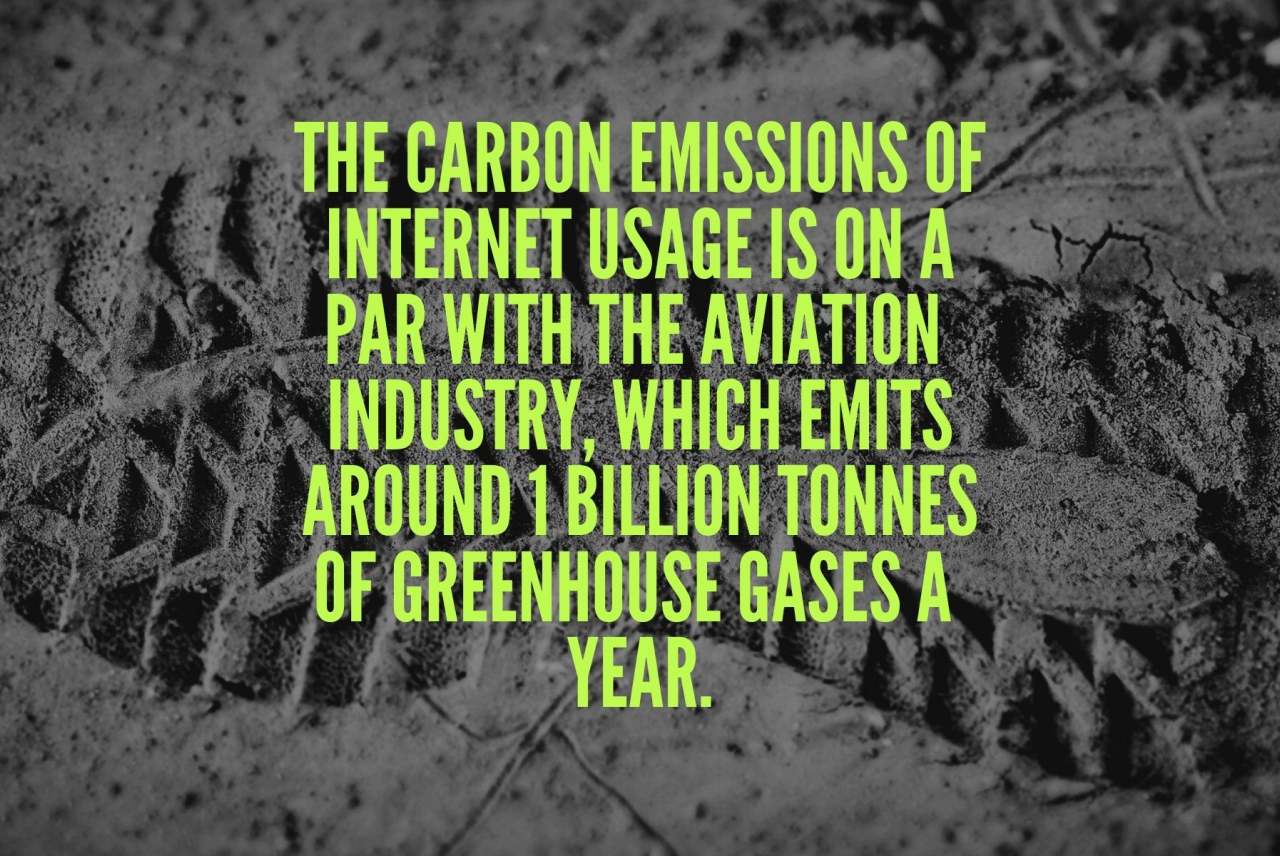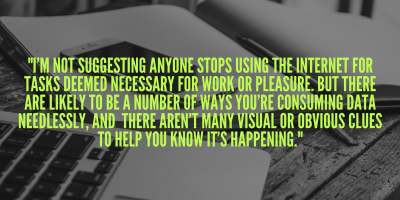Trends in internet usage
We do know for sure that data demand has sky-rocketed. When I say data demand, what I am referring to is the data that gets transferred so that you can view something on the internet. It’s the code (HTML, CSS, Javascript etc) and the content (images and videos). In 2017 it was estimated that the amount of data being sent by the internet was around 1.1 zettabytes (ZB). That's a trillion gigabytes (GB).
The scary thing is that by 2022, it’s predicted that internet traffic will reach 4.8 ZB.
The same report put those numbers on a scale more meaningful to each of us as individuals. It suggests that per person, per month our individual data usage will rise from 16GB in 2017 to 50GB in 2022. Research suggests that video content is the main thing behind this increasing demand.
We do have some light at the end of the tunnel. Despite such huge increases in data demand, new efficiencies in data centre management have helped to slow the increase in the internet’s electricity consumption dramatically. It is still growing though!
If only we had 100% clean energy.
This ballooning energy consumption wouldn’t be such an issue if energy production was clean. But it isn’t.
Around 85% of all the world’s energy is still produced using fossil fuels. And as we know fossil fuels are the primary driver behind human-made climate change.
Reducing our impact
I recommend two primary ways we can go about taking action:
- Reduce the amount of data we’re using unnecessarily and remove data waste
- Reduce the amount of (dirty) electricity consumed by our devices
I’m not suggesting anyone stops using the internet for tasks deemed necessary for work or pleasure. I’ve said it before and I’ll say it again – I love the internet. There are many things the internet allows me to do that I believe enriches my life and the lives of others too.
But there are likely to be a number of ways you’re consuming data needlessly, and as we’ve already discussed there aren’t many visual or obvious clues to help you know it’s happening.
For those familiar with sustainability principles, you’ll know that looking at waste and finding ways to reduce it (or ideally get rid of it entirely) is a core part of reviewing your sustainability. Looking at your internet usage’s waste is no different.
Here’s some examples to think about. I bet some of these sound familiar:
- Email waste – every automated email we receive creates a carbon emission through its generation in a data centre, its travelling from the data centre to your device and your device receiving it. How many of those emails don’t even get read and go straight in the trash? In 2018, just under 25% of emails sent by a mailing list were actually opened. The rest are just a waste. Unsubscribe to anything you are no longer interested in.
- Media streaming – on-demand media such as music provided by Spotify or videos through Netflix also have a cost. Video has an especially heavy cost with the average 90 minute film being 1GB. Consider if you can download or get hard copies of your favourite albums or shows, instead of streaming them multiple times when you rewatch or relisten. Find out more about this on the Mozilla podcast’s ‘the Internet’s carbon footprint’ episode.
- Video auto-play – on the topic of video, if you use social media pay attention to what is happening when you scroll through your feed. If videos auto-play that will be a huge source of data waste. Given the relative expense and scarcity of mobile data in past years, many of us will have changed our phone preferences to no longer auto-play video. But laptops or tablets that we use at home are frequently forgotten about. Have a look at your preferences.
- Search engine use – every time you use a search engine there is an environmental impact. The data centre has to run the search for you which is computationally quite expensive (therefore requiring energy), send you the data it finds and your device needs to display that data to you. I noted that I’ve become quite lazy and use search engines as a quick way to find a resource or website I already know about. Instead, think about whether you could use bookmarks in your browser or make a note of the things you use most often rather than searching for them.
Reducing the amount of (dirty) electricity consumed by our devices
Switch energy supplier - The most beneficial thing you can do is to switch your energy provider to one that supplies 100% renewable energy. Ethical Consumer's Gas and Electricity Suppliers guide scores and ranks the ethical and environmental record of 20 different tariffs.
Turn all devices off when they’re not in use - I’m really quite good at making sure we don’t leave any lights on unnecessarily at home. I also make sure we switch the washing machine, the dishwasher and the microwave off at the wall when they aren’t in use. My office has received the same treatment for years. These are ingrained habits that I have to save energy.
But it’s only recently that I’ve started to think about all the devices in our house which are left on standby mode overnight. Our internet router, TV, TV box (in our case NowTV) and PlayStation all draw power known as ‘vampire power’ which is completely unnecessary. These are now all totally off between midnight and 6.30 am using a timer switch.
Other steps
There are of course tons of other steps you can take to reduce the amount of electricity used by your internet-enabled devices.
Here are a few others:
- Put your mobile into airplane mode overnight so it’s not seeking a data connection. Or better yet turn it off.
- Shut your laptop or tablet down for the night. Don’t just put it into sleep mode.
- Use wired connections over wireless ones and use wi-fi over 3G or 4G. Wireless technologies use considerably more power.
More resources and people to inspire you






